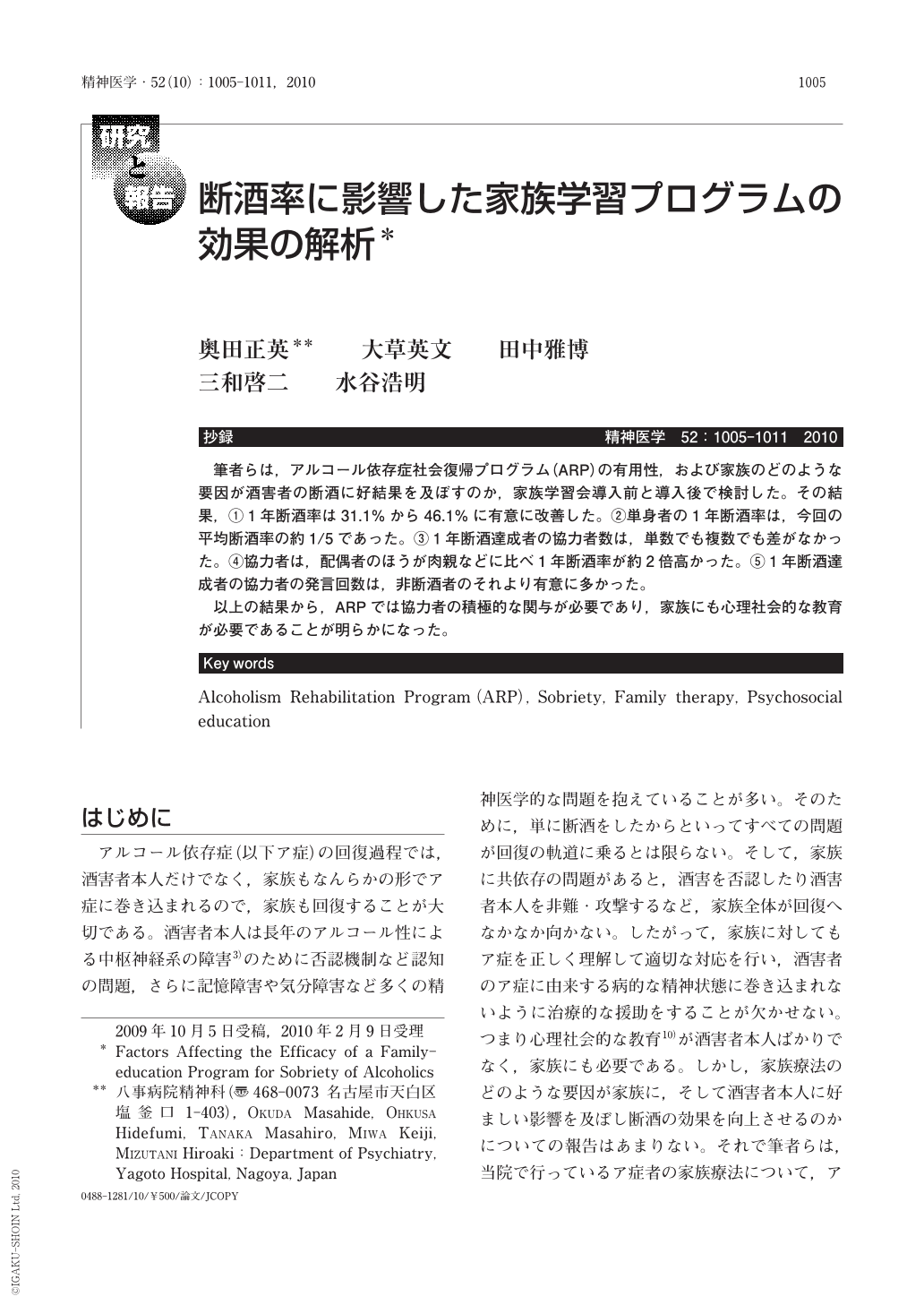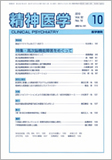Japanese
English
- 有料閲覧
- Abstract 文献概要
- 1ページ目 Look Inside
- 参考文献 Reference
抄録
筆者らは,アルコール依存症社会復帰プログラム(ARP)の有用性,および家族のどのような要因が酒害者の断酒に好結果を及ぼすのか,家族学習会導入前と導入後で検討した。その結果,①1年断酒率は31.1%から46.1%に有意に改善した。②単身者の1年断酒率は,今回の平均断酒率の約1/5であった。③1年断酒達成者の協力者数は,単数でも複数でも差がなかった。④協力者は,配偶者のほうが肉親などに比べ1年断酒率が約2倍高かった。⑤1年断酒達成者の協力者の発言回数は,非断酒者のそれより有意に多かった。
以上の結果から,ARPでは協力者の積極的な関与が必要であり,家族にも心理社会的な教育が必要であることが明らかになった。
In this study, we examined the family characteristics influencing the efficacy of an alcoholism rehabilitation program (ARP). The subjects were divided into 2 groups, namely, an initial “non-intervention group” and a subsequent “intervention group”. The non-intervention group included 103 subjects (average age:52.6 (12.0) years, male/female ratio:87/16) who were treated between January 1,2005, and August 31, 2006, whereas the intervention group included 76 subjects (average age:54.4 (12.0) years, male/female ratio:61/15) who were treated between September 1, 2006, and December 31, 2007. The families of the subjects in the intervention group attended video-lectures regarding alcoholism and discussed the obstacles in maintaining sobriety. The following were the results obtained. (1)1-year sobriety improved significantly from 31.1% in the non-intervention group to 46.1% in the intervention group. (2)The sobriety rate of individuals without any supporting family members was approximately one-fifth of the average 1-year sobriety rate of (37.4%) in this study. (3)No significant difference was found in the number of family members in each group participating in the program. (4)The active participation of spouses led to an approximately 2-fold longer sobriety period compared with the participation of other family members (i.e., parents, brothers/sisters, or partners/friends). (5)The frequency of questions posed to the ARP by family members was significantly higher in the case of individuals who achieved sobriety than in the case of those who did not.
In conclusion, active participation and psychosocial education of family members is useful for improving the efficacy of ARP.

Copyright © 2010, Igaku-Shoin Ltd. All rights reserved.


